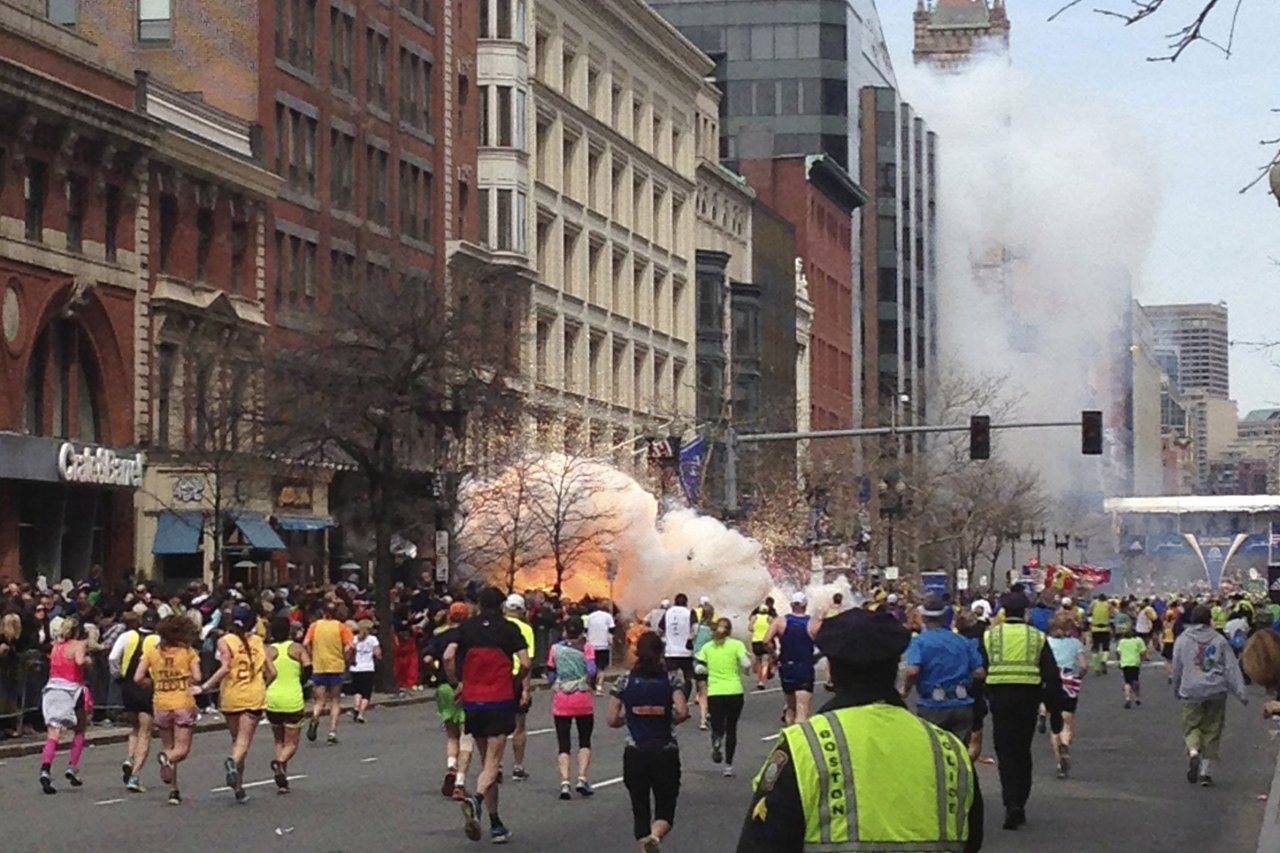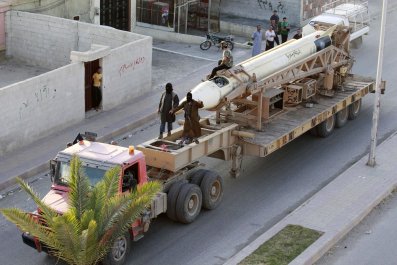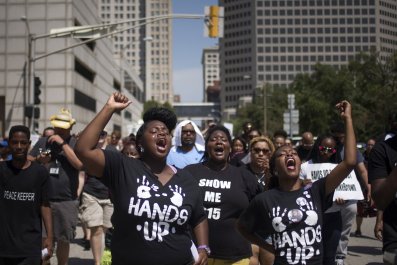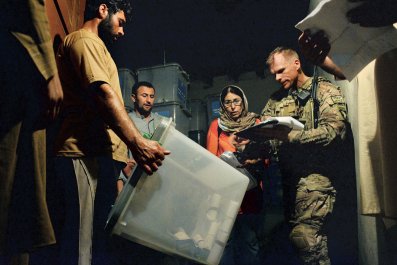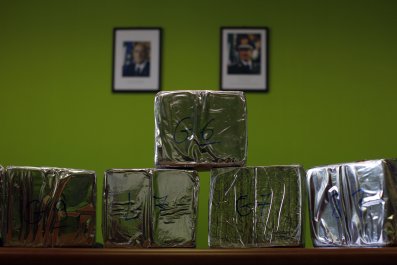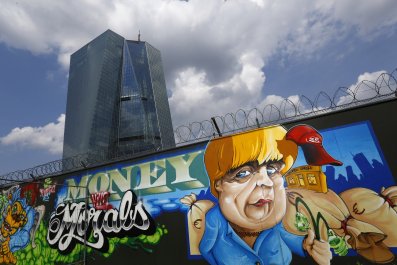Earlier this week, a text message spread like wildfire among young people in London, warning them to avoid using the underground the next morning. By 8pm, friends of mine had received the message from half a dozen people each, some believing the threat was genuine and changing their travel plans. Tweets about the message tended to link to a recent news story about the UK's decision to raise its level from "substantial" to "severe".
With threats in Germany and Norway, and King Abdullah of Saudi Arabia telling ambassadors he is "certain" that the new terror threat will reach the continent "after a month", Europe has put itself on terror alert. And when a government upgrades its terror threat level without saying why, despite no attack having yet materialised, terror flourishes.
According to experts, the authorities are most worried about small-scale, primitive, and brutally violent attacks from jihadists affiliated in one way or another with Islamic State (IS), also known as Isis, operating more independently than their predecessors, who were organised into terror cells. The result is an unpredictable agent of terror, an incarnation of the much-feared lone wolf.
"The choice is very clearly low-level attacks by very small cells or isolated people, on soft targets," says Claude Moniquet, a former agent for French foreign intelligence. He says the mass participation of up to 2,500 Europeans in the Syrian war means that, "the situation now is seen as extremely dangerous in France by the security services."
"I think that clearly the idea of a large-scale attack still exists," says Moniquet. "But the lone-wolf attack, the isolated jihadist, is much more worrying because they could attack very easily."
He says such attacks are the preference of the IS leadership: "I think if they had the choice between a global attack in two years in Washington, with all the risks of being detected, and five or six small-level attacks in Europe, they will definitely choose [the latter]."
Last month, a new English-language magazine published by al-Qaida in the Arab Peninsula again called for supporters to carry out lone-wolf bombings on specific targets, including the UK's supermarket chain Marks & Spencer, advising that attacks should happen during Friday prayer, when Muslims aren't shopping.
The security services face a race to adapt, says Moniquet. "We were trained in the security services and the intelligence services to oppose large-scale organisations, like the KGB, like the Cosa Nostra, like al-Qaida," he says, referring to the complex, long-lead plots Osama bin Laden's group made its name with. "We are not so trained to find and confront isolated people."
In his book, Les Néo-Djihadistes, published last year, Moniquet argued for the existence of a new breed of Islamists – less ideological than past incarnations, less educated, better able to arm themselves and more attracted to jihad because of its extreme violence. In recent days, the head of Germany's domestic intelligence agency, Hans-Georg Maassen, said his country's jihadists were attracted by the "intense brutality" of IS.
Moniquet says the "underdogs" that IS has recruited are more dangerous because they are used to violence. "When you are an intellectual coming from a university in Hamburg, it could be difficult to find a weapon. If you have a criminal background, you know exactly which bell you must ring."
Mohamed Merah, the French petty criminal who killed seven people in March 2012, was affiliated with al-Qaida but acted alone, and probably chose his own targets. Michael Adebolajo and Michael Adebowale, the Islamic converts who killed British soldier Lee Rigby last year, again had links to terror organisations but acted on their own initiative, using kitchen knives. And Mehdi Nemmouche, the man arrested in connection with the Brussels Jewish museum shootings that killed four in June this year, seems to have fought with IS in Syria, and has spent five years of his life in jail. His apparently deadly return to Europe (he awaits trial on a charge of "murder in a terrorist context") has been cited by officials as a sign of things to come.
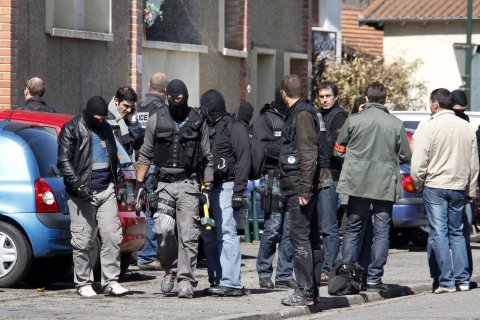
"We know what is coming next because it already happened – it happened with Nemmouche in Brussels, it's an IS militant coming straight from over there," says Jean-Pierre Filiu, professor of Middle East studies at Paris School of International Affairs. He is sceptical about the term "lone wolf" in its purest sense, because only very rare cases – like Norway's Anders Breivik – involve no outside help at all, but he says the threat from IS figures is becoming big.
"President Obama can have the luxury of saying 'We don't have a strategy yet'," says Filiu, "But we are under the volcano in Europe. Afghanistan was a cul-de-sac. Syria and Iraq is just next door. It is the first security concern of Europe – far more important than Ukraine."
It isn't just Europe's proximity to IS heartlands and the major presence of its citizens in the fight that worries intelligence chiefs. "Because of the Schengen agreement, you could go from Norway to Spain without a single passport control," says Moniquet. "You could be French but attack in Belgium, like Nemmouche allegedly did. Of course, in each country, we know more or less who are the bad guys. But we don't know the bad guys of the other countries."
Filiu says the relatively recent emergence of IS as an international terror group, and the reluctance of agents to work deep in Syria, means there is an uncomfortable level of guesswork among European spooks. "The problem – to put it bluntly – [is that] nobody has a mole inside IS. We don't have a source, not one."
"The situation is worse than it's been for a long time," says US counter-terrorism consultant Jeffrey Simon, author of 2013 book Lone Wolf Terrorism: Understanding the Growing Threat. "History tells us that unfortunately some are going to get through. But at the same point, you can't live in fear of terrorism all the time."



